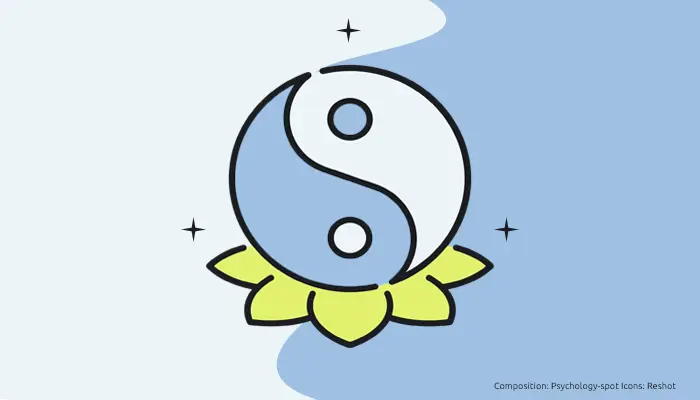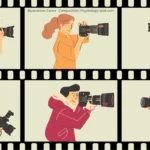
The Wu-Wei is a concept of Taoist philosophy that proposes a radical change in the western way of understanding the world and facing life. Imbued with the flow of unforeseen events and daily obligations, prey to a mind besieged by worries, guilt and frustrations, it is easy for us to end up suffering a real energy hemorrhage and generate negative emotional states that, in the long run, not only affect our well-being but also take us away from our goals.
The good news is that there is another way to live. There is a calmer lifestyle that allows us to achieve our goals with less stress, protecting our mental balance along the way. However, to put it into practice we need to understand the meaning of Wu-Wei.
What is Wu-Wei? The action of the non-action
The “wu-wei” is an essential concept of Taoism that literally means inaction or no action. Unfortunately, it is also one of the most complex concepts to understand and apply for a Western mindset that prioritizes action over all things.
To understand the essence of Wu-Wei you have to delve into its meaning in Sanskrit. In that language there are two well differentiated words to express two ideas that we often exchange:
akarma = inaction
akarmakR ^ it.h = doing nothing
They are two different concepts, inaction is something natural that does not require effort. On the contrary, if we pretend to be without doing anything we will have to make an effort because it is not natural. If we self-impose immobility and force ourselves to be without doing anything, we will not be able to relax completely.
For example, some people may find it very difficult to meditate precisely because they are struggling to do nothing and blank their minds. After several unsuccessful attempts, it is not uncommon for them to abandon the practice. On the other hand, if you let the mind flow freely, if you remained inactive, you would find that you can quickly achieve that state of tranquility and inner peace that you seek.
The Wu-Wei proposes precisely learning to flow through inaction. It is not about remaining helpless, if we need to do something, we do it, but in that action we continue to flow. It is a state of mind that allows us to distinguish valuable effort from that which is a waste of time and energy.
The Wu-Wei as a state of flux
There is a more radical Wu-Wei definition that implies “Nondual action; that is, an action in which there is no bifurcation between the subject and the object ”, as David Loy explains. There is a fusion between the activity and the subject who performs it.
In practice, we become so immersed in what we are doing that we lose consciousness of our “self”. Our identity fades as we fully devote ourselves to what we are doing and enjoy that moment to the fullest.
This conception of the Wu-Wei resembles the state of flux described by the psychologist Mihaly Csikszentmihalyi. When we do a highly rewarding activity, we experience a state of well-being and fulfillment that makes us lose track of time and ourselves. Even though we try hard, that effort flows naturally.
In these states we experience what the philosopher Valérie De Prycker defined as the “paradox of control.” Abandoning ourselves to the experience and letting go of our need for control often creates a state of anxiety and fear. However, in the state of flux, or Wu-Wei, we maintain a sense of control without there being a “self” that claims it narratively.
Feeling that we are going in the right direction, we abandon ourselves, we do not feel the need to exercise the same degree of control that we maintain in our daily lives, but we trust more in the flow of events. That allows us to get things done with infinitely less effort. Therefore, Wu-Wei experiences can be very positive and pleasant.
Grow like a flower, naturally and effortlessly
Flowers grow effortlessly, naturally. However, imagine for a moment that a flower develops a consciousness similar to our own. It is likely starting to worry about the flowering process it has to face. It may wonder what color its leaves will be, if it could speed up the process using fertilizer, how much it costs, and if it can afford it, or even wonder if it will be more beautiful and larger than the flower that grows next. Thus, what is a natural process could become a real trauma.
We, like that flower, have many worries, preconceptions and prejudices that prevent us from flowing. Every time we worry about the future, even if the chances that our worst fears will be fulfilled are slim, we are going against the Wu-Wei. That means that we waste psychological energy in vain. In fact, if we look back we will realize that most of our concerns were revealed unfounded and many of our worst omens never materialized.
The essential message that Taoism transmits through the Wu-Wei tells us that life is an organic and interconnected whole in continuous transformation. Understanding that unity and learning to insert ourselves in that flow will improve considerably for our physical and psychological well-being, helping us to reach our goals with less wear and tear.
Do nothing, but leave nothing to do
The Wu-Wei does not promote inactivity. It is not synonymous with laziness or passivity. It does not mean lying on the edge of the river but rather swimming with the current. In fact, one of its most important principles states that “You must not leave anything to do.” It involves doing things spontaneously and naturally, without burdening ourselves with unnecessary worries that lead us down forced paths. It helps us achieve what we want with less effort.
Therefore, the idea of Wu-Wei is based on two essential mentality changes:
1. Learn to trust events
2. Take advantage of circumstances
Embracing the Wu-Wei does not mean that we should not have goals and ambitions, but rather that we should not make them a source of worry that robs us of calm and emotional balance. On the contrary, we must be vigilant to take advantage of the favorable circumstances that allow us to achieve those objectives with the least possible effort, without adding unnecessary mental pressure. Like a good sailor, we just have to wait for the auspicious wind.
In the same way, it implies that when we finish a task or close a chapter of our life, we do not think about it anymore harboring guilt, resentment or remorse because in this way we will stay tied to the past, we will keep our minds occupied and we will not be able to detect new opportunities when they present themselves.
Wu-Wei is a calm state of mind in which we rely on our abilities and the flow of life. It means maintaining serenity even in the darkest moments because we are certain that sooner or later the sun will rise.
How to apply the Wu-Wei in the day to day?
Initially, it can be very difficult to apply the Wu-Wei concept as we are culturally “programmed” to worry and despair. However, if we consciously take one step at a time, we will soon be able to embrace this philosophy of life.
• Learn not to worry. Apply the old principle “If there is no solution to the problem then don’t waste time worrying about it. If there is a solution to the problem then don’t waste time worrying about it.” It is not about ignoring problems but about seeing them in perspective so that you can act accordingly. Instead of worrying, something that will lead us nowhere, we must draw up action plans in the event of contingencies. We will feel better, more secure and confident.
• Learn to trust. We must trust the course of life and our abilities. Only then can we seize opportunities when they arise. If we don’t trust ourselves, the fear of failure will make us fail. It will become a self-fulfilling prophecy. Many people miss out on opportunities just because they unconsciously believe they are unworthy of them.
• Develop a calm attention. According to Lao Tzu, to apply the Wu-Wei we must be more still, attentive and willing to learn. This attitude will allow us to listen to both our inner dialogue and the voices that come from our environment, but without interfering with them, that is, without judging or criticizing them.
• Listen to intuition. Applying the Wu-Wei on a day-to-day basis also demands that we stop relying solely on our logical mind to pay more attention to intuition. Often, that intuition will help us to flow, indicating the most spontaneous, natural and effortless course and action, appropriate in time and place, which favors harmony and balance.
Sources:
Slingerland, E. (2000) Effortless Action: The Chinese Spiritual Ideal of Wu-wei. Journal of the American Academy of Religion; 68(2): 293-327.
Barret, N. F. (2011) “Wuwei” and flow: Comparative reflections on spirituality, transcendence and skill in the “Zhuangzi”. Philosophy East and West; 61(4): 679-706.
De Prycker, V. (2011) Unself-conscious control: broadening the notion of control through experiences of flow and wu-wei. Journal of Religion and Science; 46(1): 5-25.
Csikszentmihalyi M. & LeFevre J. (1989) Optimal experience in work and leisure. J. Pers. Soc. Psychol; 56: 815–822.
Loy, D. (1985) Wei-Wu-Wei: Nondual Action. Philosophy East and West; 35(1): 73-86.



